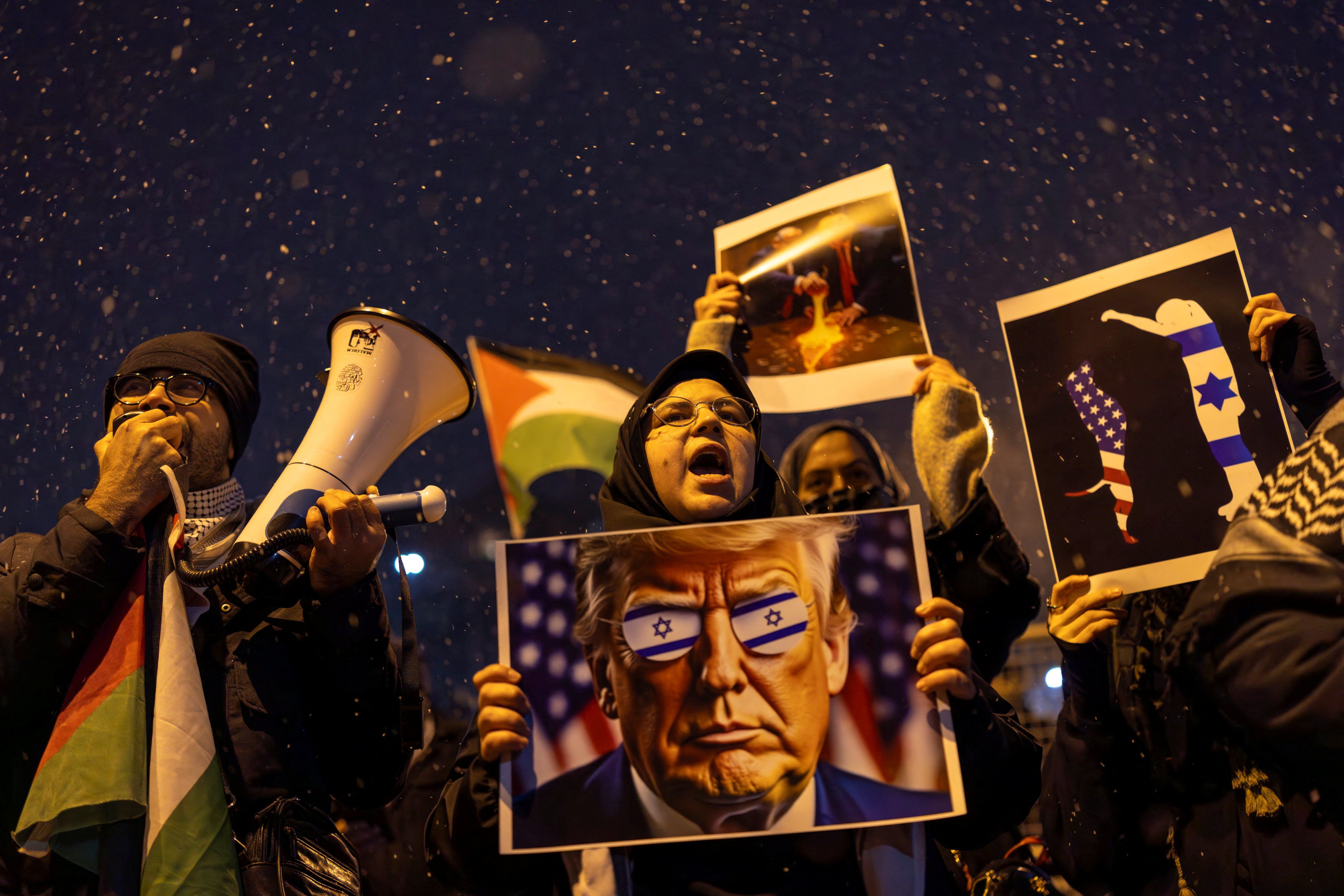President Donald Trump is doubling down on his proposal to remove Palestinians from Gaza for resettlement. He insisted early Thursday that Israel will give the territory to the US, with no military intervention required (The UN and other international bodies would argue that Gaza is an occupied territory and isn’t Israel’s to hand over).
Trump then signed an order on Thursday imposing sanctions on the International Criminal Court, accusing it of “illegitimate and baseless actions” for having issued an arrest warrant last year against Israeli Prime Minister Benjamin Netanyahu for alleged war crimes in Gaza. The court’s president, Judge Tomoko Akane, has said such sanctions undermine the ICC’s work and put “the very existence of the court at stake.”
The move came just days after Trump discussed turning Gaza into a seaside resort — a “Riviera of the Middle East” — during his press conference with Netanyahu at the White House on Tuesday.
After 15 months of bombardment, nearly 70% of the territory’s buildings have been destroyed, with an estimated $18.5 billion in damage. Gaza’s decimated healthcare system is no match for mass starvation and the communicable diseases affecting the remaining population. Though the current cessation in hostilities ostensibly allows more aid to flow into Gaza, that’s more challenging now that the Trump administration has paused USAID funding and Israel has outlawed the United Nations Relief and Works Agency.
Netanyahu and some 80% percent of Jewish Israelis support Trump’s suggestion to move Gazans to neighboring countries like Jordan and Egypt. But much of the rest of the world has dismissed it as inhumane and dangerous. Jordan’s King Abdullah II, who meets with Trump on Feb. 11, said that ethnically cleansing Gaza and displacing Palestinians in Egypt and Jordan would incite a new generation of Palestinian resistance and cause further regional upheaval. Jordan and Egypt have flatly rejected the notion of taking in Gazans en masse; Jordan notably absorbed hundreds of thousands of Palestinian refugees following the 1948 and 1967 wars.
Trump wants Gulf states to help fund Gaza’s recovery, but countries like Qatar, Saudi Arabia, and UAE have declined, insisting on a future Palestinian state.
Was this just an opening gambit? The US president may just be pushing the boat out to try and provoke other ideas, says Jon Alterman, Middle East director at the Center for Strategic and International Studies. “[Other actors] will come up with other ideas, and Trump will begin wheeling and dealing and saying, ‘Look what I could evoke,’” he said.
But regional leaders are unlikely to take steps outside their best interests. The key to leverage in the Middle East is longevity, and Gulf leaders have a much longer time horizon than any US president. It’s important to remember, Alterman says, that US presidents “don’t have the necessity of living with long-term consequences of short-term decisions” the way leaders in the Middle East do.
Gulf leaders “have all seen presidents come and go. The pressures are different, and they're willing to accommodate American presidents and flatter American presidents and ignore American presidents, but it’s all playing a long game.”
